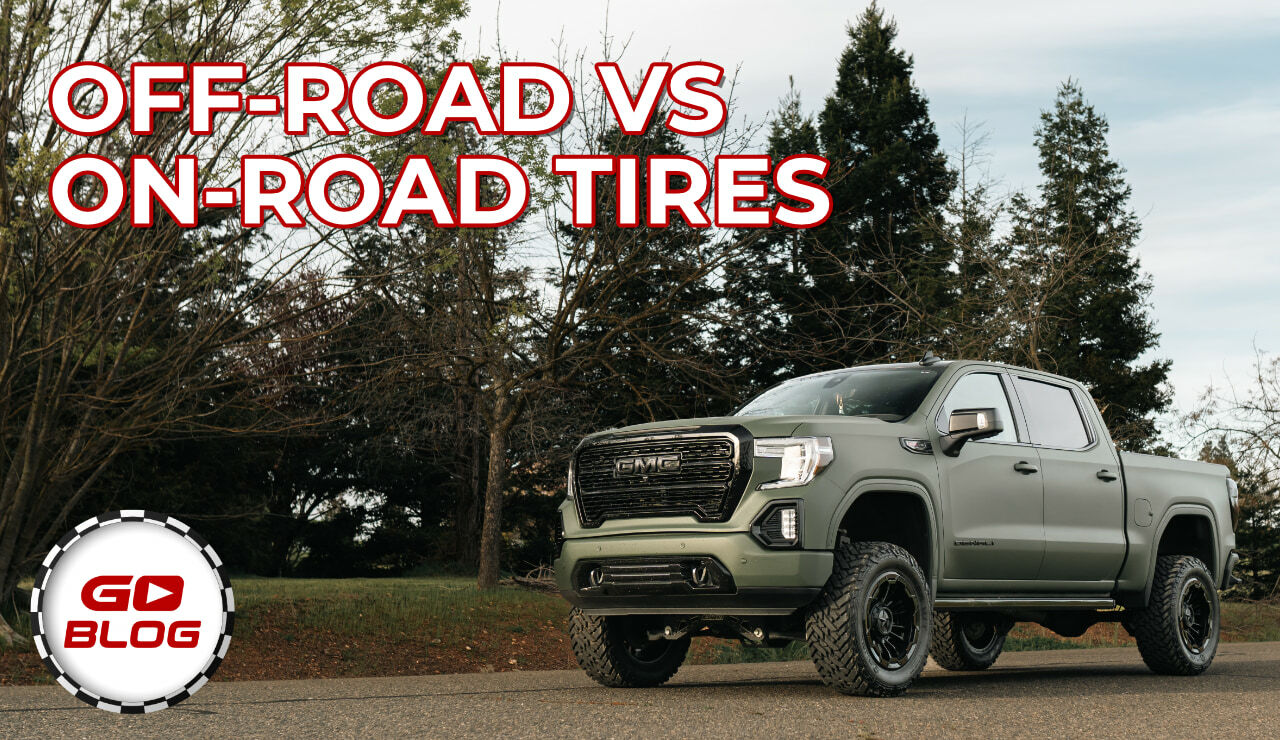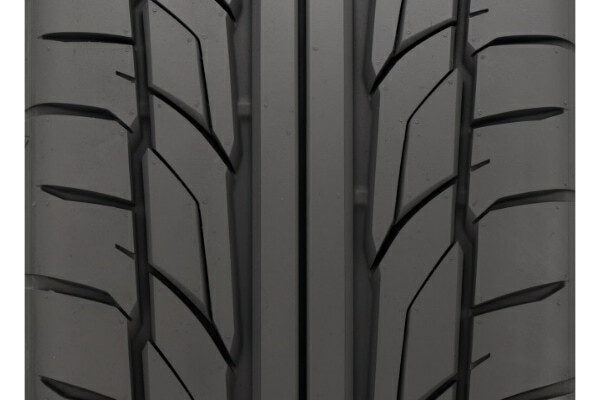Off-Road Tires vs. On-Road Tires: What’s the Difference?
Posted by WheelSetGo on 30th May 2024

Off-Road Tires vs. On-Road Tires: What’s the Difference?
When it comes to choosing the right tires for your vehicle, understanding the differences between off-road and on-road tires is crucial. Each type of tire is designed with specific features to perform optimally in different driving conditions. In this blog post, we'll explore the key differences between off-road and on-road tires, focusing on design, performance, and the best use cases for each.
Understanding Tire Basics
Before diving into the specifics of off-road and on-road tires, it's important to understand some basic tire terminology:
- Tread Pattern: The design of the grooves and channels on the tire's surface.
- Sidewall: The side portion of the tire, which provides stability and protects against impacts.
- Ply Rating: Indicates the tire's strength and load-carrying capacity.
Off-Road Tires: Built for the Rough Terrain

Design Features
Off-road tires are engineered to handle rough, uneven, and challenging terrains. Here are some key design elements:
- Aggressive Tread Patterns: Off-road tires have deeper and more aggressive tread patterns to provide better traction on loose surfaces such as mud, sand, and rocks.
- Reinforced Sidewalls: These tires feature thicker and more durable sidewalls to resist punctures and damage from sharp objects.
- Wide Grooves: The wide grooves help in self-cleaning, allowing mud and debris to be ejected from the tread to maintain grip.
- Higher Ply Ratings: Off-road tires often have higher ply ratings to enhance their durability and load-carrying capacity in rough terrains.

Performance Aspects
Off-road tires excel in:
- Traction: Superior grip on off-road surfaces, including mud, sand, gravel, and snow.
- Durability: Enhanced durability to withstand harsh conditions and rough terrains.
- Flexibility: Ability to conform to uneven surfaces, providing better control and stability.
Best Use Cases
- Off-Road Adventures: Ideal for vehicles used in off-road activities such as rock crawling, mudding, and desert racing.
- Heavy-Duty Work: Suitable for trucks and SUVs used in construction, farming, and other rugged environments.
On-Road Tires: Optimized for Pavement

Design Features
On-road tires, also known as highway or touring tires, are designed for optimal performance on paved roads. Key design elements include:
- Symmetrical Tread Patterns: These tires typically have a more uniform tread pattern that enhances contact with the road surface.
- Siping: Fine slits in the tread blocks improve grip on wet surfaces and reduce the risk of hydroplaning.
- Lower Rolling Resistance: Designed to reduce rolling resistance for improved fuel efficiency and smoother rides.
- Balanced Ply Ratings: On-road tires have balanced ply ratings suitable for everyday driving, providing a good mix of strength and comfort.

Performance Aspects
On-road tires are known for:
- Comfort: Providing a quieter and more comfortable ride on paved roads.
- Handling: Better handling and stability at high speeds, making them ideal for highway driving.
- Fuel Efficiency: Optimized for lower rolling resistance, which can enhance fuel economy.
Best Use Cases
- Daily Commuting: Perfect for passenger cars and SUVs used primarily for daily commuting and long-distance highway driving.
- City Driving: Ideal for urban environments where smooth and quiet performance is essential.

Making the Right Choice
When choosing between off-road and on-road tires, consider the following factors:
- Driving Conditions: Assess the typical driving conditions you encounter. If you frequently drive off-road, off-road tires are the better choice. For primarily paved road driving, on-road tires are more suitable.
- Vehicle Type: Some vehicles, like heavy-duty trucks and SUVs, may benefit more from off-road tires, while sedans and compact cars are better matched with on-road tires.
- Performance Needs: Determine your performance priorities, such as traction, durability, comfort, and fuel efficiency.
Wrapping Up
Understanding the differences between off-road and on-road tires can help you make an informed decision that enhances your driving experience. Whether you're conquering rugged terrains or cruising on highways, choosing the right tires is crucial for safety, performance, and comfort. If you need further assistance in selecting the perfect tires for your vehicle, feel free to reach out to WheelSetGo at 320-247-6160. Our experts are here to help you find the best tires for your driving needs. Happy driving!
